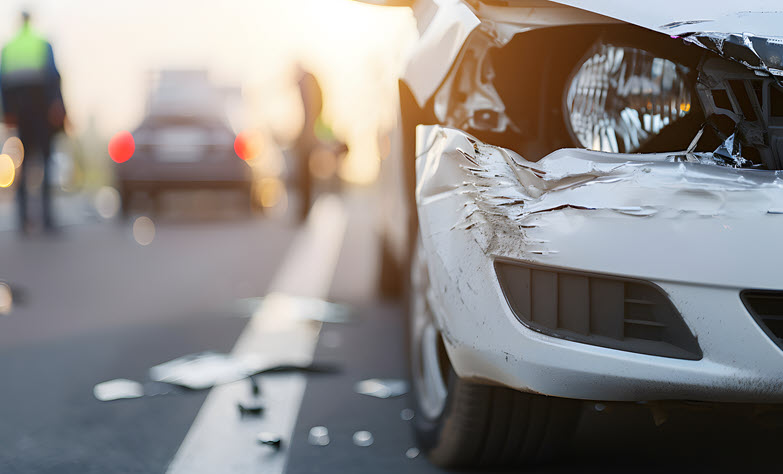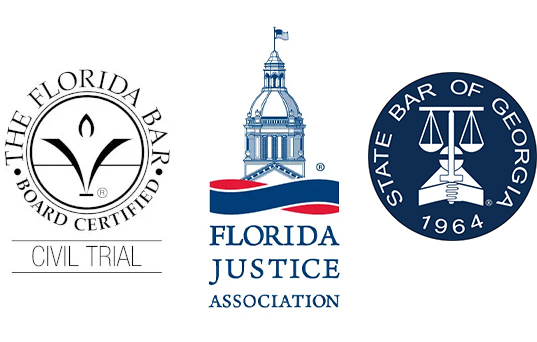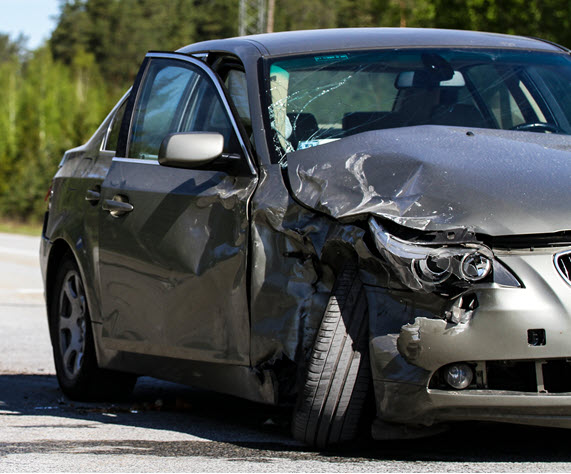
Free Consultation
Tampa Hit-and-Run Accident Lawyers
Strong advocacy for hit-and-run accident victims in Florida
Anyone involved in a personal injury accident in Tampa must stop and provide their driver’s information and contact information. Despite this clear legal and moral requirement, many drivers hit another vehicle and then run/drive away. At MattLaw, we work with police and investigators to locate the hit-and-run driver and the owner of the vehicle. Our Tampa hit-and-run lawyers file claims with your own UM/UIM carrier if the hit-and-run driver can’t be found. Whether the driver can be found, we demand compensation for all your financial and personal damages. We’ve obtained more than $250 million for our clients.
Free Consultation
How we can help you
- What duty do drivers have to stop after an accident in Tampa?
- Why do drivers hit and run?
- What steps do you take to locate a hit-and-run driver in Tampa?
- How do I file a car accident claim if the hit-and-run driver successfully flees?
- How much is my hit-and-run car accident claim worth in Florida?
- Do you have a Tampa hit-and-run car accident lawyer near me?

What duty do drivers have to stop after an accident in Tampa?
Florida law requires that a driver who is involved in an accident that causes injuries or death, or vehicle damage shall:
- Provide the name, address, and car registration number of their vehicle to anyone who is injured or the driver or occupant tending to the vehicle.
- On request, provide their driver’s license information to the same people identified above.
- Provide their driver's license to a police officer at the accident site.
- Render reasonable assistance to anyone who is injured, “including the carrying, or the making of arrangements for the carrying, of such a person to a physician, surgeon, or hospital for medical or surgical treatment if it is apparent that treatment is necessary, or if such carrying is requested by the injured person.”
If none of the victims can receive the information and there is no police officer, the driver should report the accident “to the nearest office of a duly authorized police authority.”
Some exceptions, like the right to protection against self-incrimination, may apply.
The statute is a nonmoving traffic violation, not a criminal traffic infraction.

Why do drivers hit and run?
Hit-and-run drivers may be involved in head-on accidents, rear-end accidents, broadsides, DUI accidents, speeding accidents, work zone accidents, and other types of accidents. At MattLaw, we understand why hit-and-run drivers fail to provide the information Florida law requires.
Some of the reasons a driver may flee after an accident include:
- The driver does not have liability insurance
- The driver is driving under a suspended driver’s license
- The driver fears he may be arrested for a variety of reasons
- The driver is intoxicated or driving under the influence of drugs
- The driver is heartless
It’s not critical to know why the hit-and-run driver fled. It is critical to know that there was a car accident and that another driver was responsible.
What steps do we take to locate a hit-and-run driver in Tampa?
First, you should call the police. Then if you can, exchange your contact and driver information with any other drivers who do stay at the accident. You should also see if you can identify the make and model of the car and some characteristics about the driver.
Our Tampa hit-and-run lawyers work with the police and our own investigators to try to locate the driver. If the driver is in an accident, the driver may take their vehicle to a local car repair shop. Our investigators may find video footage from local businesses or homeowners that identifies the license plate of the driver’s car. The police may be able to track down the driver through license plate information and other car information.

How do I file a car accident claim if the hit-and-run driver successfully flees?
We make every effort to locate the driver. If we can locate the driver, then we file a car accident claim against the driver. The police may file criminal charges. Ideally, the driver has insurance coverage. If we cannot locate the driver, the driver is not insured, or the driver doesn’t have enough insurance to pay your claim, then we can file a car accident claim through your own uninsured/underinsured (UM/UIM) liability policy.
Most car owners buy UM/UIM coverage when they buy their liability policy. If you have UM/UIM coverage, then our Tampa hit-and-run accident lawyers will file a UM/UIM claim for you. We can work with your carrier to show the accident is due to the fault of a hit-and-run driver. In order to file a liability claim, you must meet the statutory requirements. You must call the police and report the hit and run collision. And you need to notify your insurance company.
Generally, Florida requires that victims use their Personal Injury Protection (PIP) coverage unless they have a threshold “permanent injury.” A significant injury includes:
- Significant and permanent loss of an important bodily function (like the loss of function of your hand, or drop foot, or you can’t walk or run).
- Permanent injury within a reasonable degree of medical probability, other than scarring or disfigurement (this is usually in the form of an opinion from your treating doctors).
- Significant and permanent scarring or disfigurement
- Death
We’re prepared to explain when and how passengers who don’t own a car, pedestrians, and bicycle riders who are struck by a hit-and-run driver can file a UM/UIM claim through someone in their household. We can also explain when and how accident victims can receive compensation through Florida’s Bureau of Victim Compensation.
Generally, your UM/UIM carrier will have the right to collect the amount they pay you from the hit-and-run driver if they can find the hit-and-run driver. We can explain your duty to participate in any trial against the hit-and-run driver.
How much is my hit-and-run car accident claim worth in Florida?
In Florida, accident victims can receive compensation for 80% of their medical bills and 60% of their lost wages up to the policy limit of $10,000 through their PIP policy, regardless of fault.
If you are eligible to file an accident claim against the hit-and-run driver or through your UM/UIM policy, then our Tampa hit-and-run accident lawyers will help you obtain the following damages:
- All your current and future medical bills of every nature
- Your lost wages, benefits, business income, and long-term wage losses if you cannot work again
- Your physical pain and emotional suffering for every day and every way you hurt
- The damage to your vehicle and any other property damage
- Loss of bodily function
- Inability to enjoy life’s pleasures
- Scarring and disfigurement
- Aggravation of a pre-existing condition
If a hit-and-run accident is fatal, we file a wrongful death action on behalf of the family members. Wrongful death damages include the funeral and burial costs, the loss of financial support, the loss of personal support, and the value of any services your loved one would have provided.
If we can locate the driver, we may also seek punitive damages for leaving the scene of an accident.
Do you have a Tampa hit-and-run car accident lawyer near me?
MattLaw meets clients at our office located at 304 S Plant Avenue in Tampa, Florida. If you are too injured to come to us, we can make arrangements to meet you at your home or another convenient location. We also discuss cases by phone and through video conferences.
We’ve been fighting for 35 years to help clients obtain the compensation they deserve.
Contact our Tampa hit-and run accident lawyers for experienced help now
Get the help you need – whether or not the police can find the hit-and-run driver who crashed into you. At MattLaw, we work with investigators who can help track down hit-and-run drivers so we can file a claim with the driver’s insurance carrier. We also file UM/UIM claims if a hit-and-run driver escapes discovery or does not have insurance. Call us now or complete our contact form to schedule a free consultation. We represent car accident claims on a contingency fee basis.
